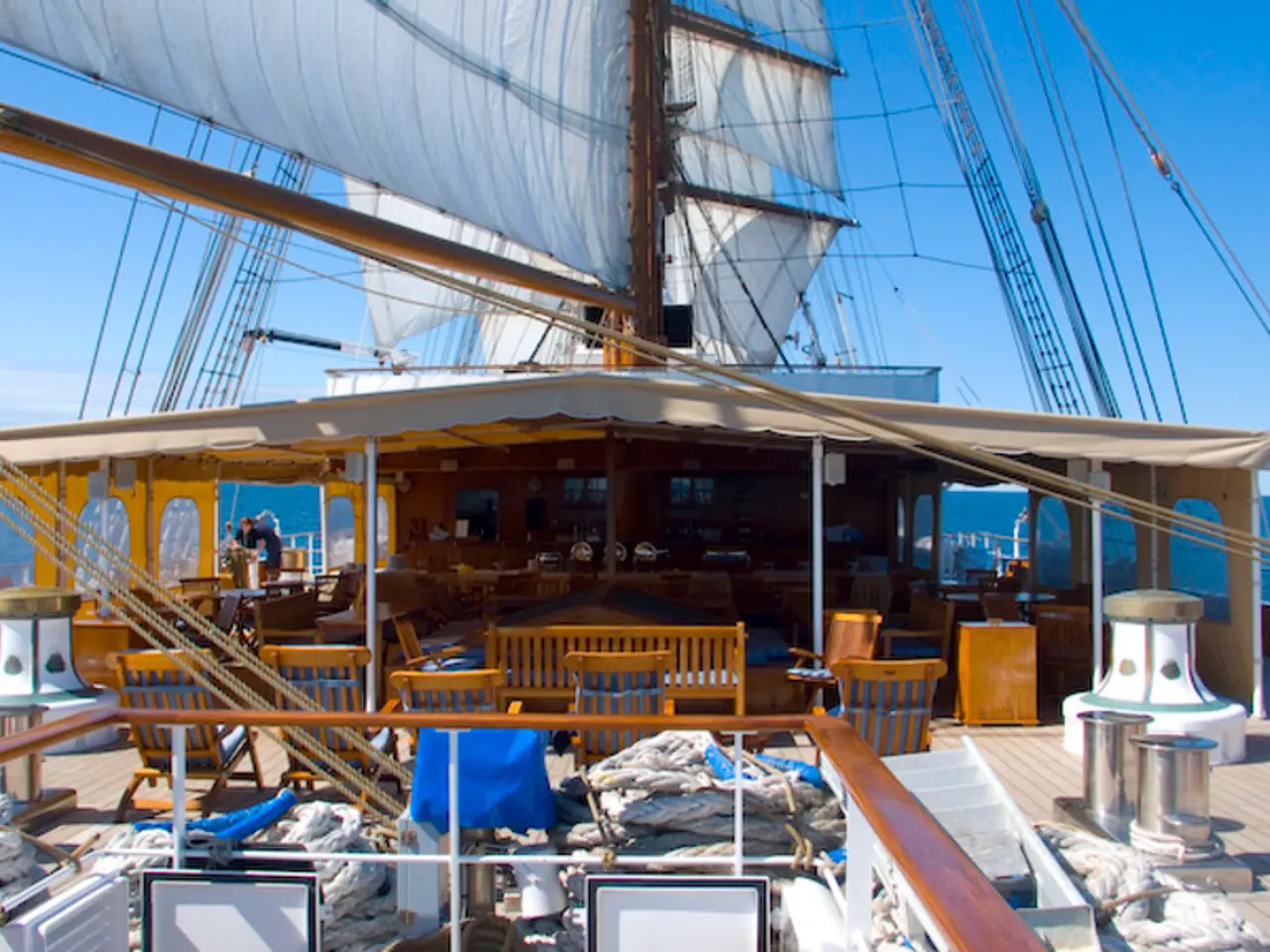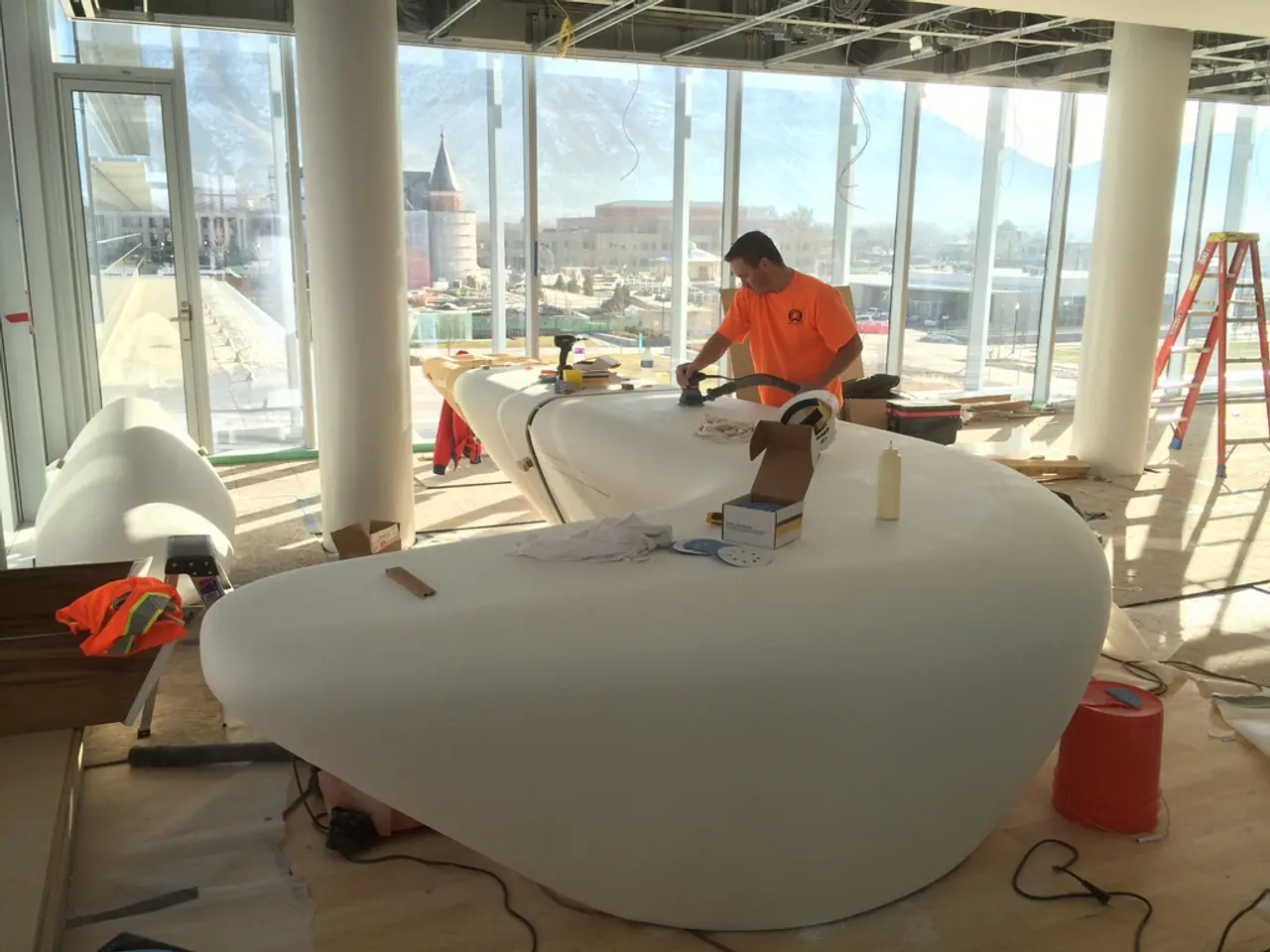Klingbeil advocates for protecting and promoting industrial employment opportunities
Steelworks Green Transformation Hits a Roadblock
Cottbus — The future of industrial jobs in Germany's steel industry hangs in the balance after a setback in the "green" transformation. SPD chairman Lars Klingbeil, who's concern is preserving employment, stated emphatically, "We're fighting for every industrial job in Germany."
In a turn of events, ArcelorMittal Europe has shelved plans to transform its flat steel mills in Bremen and Eisenhüttenstadt, abandoning their goal of climate-neutral production without coal. The decision was made due to poor market conditions and the unviability of CO2-reduced steel production. The company is also relinquishing state funding.
Political Ramifications
Klingbeil has called for a meeting, addressing German Federal Economics Minister Katharina Reiche. "Please invite the works councils, the management, the two affected ministers, and I would also be happy to support it as finance minister," he declared. "We must create jobs for green hydrogen in Germany."
ArcelorMittal's announcement has drawn regret from the Federal Ministry of Economics, with no state funds having been disbursed yet. Both Klingbeil and Brandenburg's Minister President Dietmar Woidke have expressed intentions to meet with Dirk Vogeler, the chairman of the works council at ArcelorMittal in Eisenhüttenstadt.
Behind the Decision
ArcelorMittal's decision mainly stemmed from Germany's high energy costs and the uncertain future energy conditions. The company noted that electric arc forges are being built in countries with more competitive and reliable energy sources, like nuclear-powered France. Alongside this, ArcelorMittal highlighted the intense competition from foreign steel imports as a vital challenge for the European steel industry's sustainability and competitiveness[1][3][4].
While the German government and the state of Bremen promised €1.3 billion in financial support, the company found Germany's expensive and unpredictable electricity supply a major obstacle[1]. This devastating decision has significant implications for Germany's green hydrogen strategy and industrial policy aimed at climate-neutral steel production[5].
Political leaders, including SPD leader Lars Klingbeil, have emphasized the need for a collaborative and swift response to preserve industrial jobs in the steel sector amid this setback. Klingbeil has called for the aforementioned meeting to explore solutions for job security and potential green hydrogen-related employment opportunities within Germany[5].
[1] https://www.bloombergquint.com/global-economy/arcelormittal-says-europe-steel-capital-wont-be-net-zero-by-2050[3] https://www.reuters.com/business/energy/steel-makers-rally-european-union-aid-green-transition-2021-09-02/[4] https://www.reuters.com/business/autos-transportation/stein-looses-steel-job-industry-struggles-germany-2022-02-28/[5] https://www.channel4.com/news/germany-arcelormittal-steelworks-climate-neutral-productions-deserted-green-hydrogen-jobs
Amid the setback in Germany's "green" transformation of the steel industry, the finance minister, Lars Klingbeil, has urged for discussions with Federal Economics Minister Katharina Reiche, aiming to create jobs for green hydrogen in Germany's finance sector. Due to high energy costs and uncertain energy conditions, ArcelorMittal's decision to shelve plans for climate-neutral production at its flat steel mills in Bremen and Eisenhüttenstadt was predicated upon the more competitive and reliable energy sources found in countries like nuclear-powered France.




